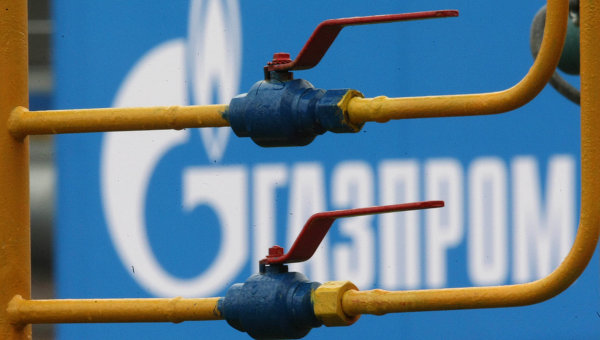Moscow interrupted gas supplies to Kiev, but continued to pump gas tu Europe. Then the Old Continent companies could purchase gas from Russia and use part of it, reversing the flow, to supply Ukraine too. This is one of the hypothesis under study for trying to bypass the stop to gas flow imposed by Russia, decided after Ukraine failed to pay overdue amounts for already supplied gas.
According to Naftogaz MD, Andrey Kobolev, there would be several subjects entities ready to cooperate: European companies, he said some days ago, are ready to sell gas to Ukraine at 325$/1,000cm, a price lower than the one proposed by Russia – 385$/1,000cm (actually, lower than the price accorded after Viktor Yanukovich’s fall, the former pro-Russian president, 485$/1,000cm).
Now the Russian stop to flows has become official, considering that its ultimatum for the settlement of at least part of the debt expired, and the possibility of taking advantage of that solution appeared more and more feasible. Naftogaz asked the European Commission for a substantial gas supply, coming from a reversing of the flow coming from Slovakia, Kobolev explained. The fact was confirmed by the Ukrainian Prime Minister too: Arsenyi Yatsenyuk reminded that an agreement on reverse flows has already been signed, anticipating that a government delegation will ask for enriched supplies in the days to come. According to Kobolev, quoted by Itar Tass, the EU is already moving towards this target: “The European Commission has officially asked for the first time European companies to purchase gas and then pump it towards Ukrainian deposits,” said the leader of the Ukrainian company.
The idea is far for being appreciated by Russia: a reverse flow from Slovakia – a country purchasing about 80/90 percent of its gas supplies from Russia – would mean giving Ukraine the gas Russia denied, even with an advantageous price. This is why Gazprom could decide to impose restrictions to European companies willing to follow that way: “Reversing flows is a semi-cheating mechanism, gas does the rounds, but it still is Russian gas,” shouted Alexei Miller, boss of the Russian gas giant, who also invited everyone to make an accurate evaluation about the legality of their actions. The mechanism in fact, according to Gazprom, breaches the contracts between the Russian society and its European clients, which could then pay a fine for this.
Formally, Russia should not give its assent to any reverse flow, yet even the Commissioner for the EU for Energy, Gunther Oettinger, admitted that getting back gas to Kiev trough Slovakia (an operation that could bring Kiev 10 billion cubic metres a year), would be difficult without Gazprom’s assent – it would in fact breach the contract with the Slovakian company Eustream.
Ukraine receives supplies from Poland and Hungary already, thanks to reverse flows. The agreement for activating a reverse flow from Slovakia through the Vojany – Uzhgorod pipeline was signed on April 28, 2014 and should function in September. These mechanisms are getting more and more important given the fracture between Russia and Ukraine, with negotiations to find a solution for the gas issue which seem permanently failed.
Russia abandoned the negotiation table, refusing the proposal of mediation offered by the European Commission. For Brussels, Ukraine would have paid immediately one billion dollar, with the total payment to be done in six instalments by the end of the year. Dealing with the final price of gas, the Commission proposed two different amounts: 300$/1,000cm in summer, and 3854/1,000cm in winter. A compromise approved by Ukraine but denied by Russia.
The situation is quite scary for Europe too – we receive about half of the gas bought from Russia through Ukrainian pipelines, and we’ve already experienced strong fallouts during the gas war between Moscow and Kiev in 2006 and 2009. Gas transit should be guaranteed, yet we must wait and see whether Ukraine, suffering for gas shortage, would take part of the flow for its own needs. The risk is real, said Gazprom, which said it will continue the full supply towards Europe on its side. Commissioner Oettinger is worried too: “we could have serious problems in case of a frigid winter” was Ukraine to tap from reserves.
Pleas proliferate for avoiding the worst: Russia and Ukraine, said the President of the European Commission, José Manuel Barroso, should “make an effort” to reach an agreement allowing the supplies between the two countries to be restarted. The same call came from the United States, which asked Moscow to get back at the negotiation table. “The European Union offered a reasonable compromise,” said the spokesperson for the State Department, Jennifer Psaki, “we are calling upon Russia to get back into the negotiations.”











![Una donna controlla le informazioni sul cibo specificate sulla confezione [foto: archivio]](https://www.eunews.it/wp-content/uploads/2014/12/Etichette-alimentari.jpg)
